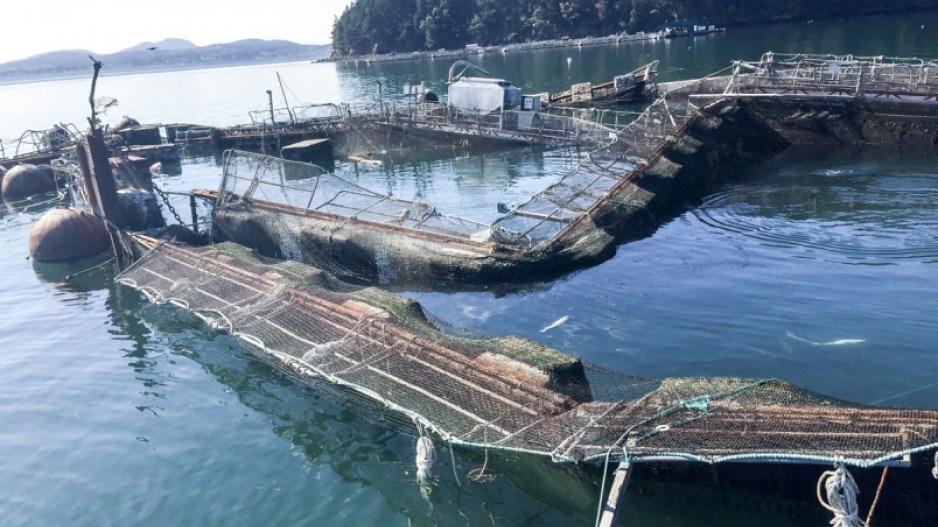Democratic Sen. Kevin Ranker, who represents Orcas Islands in Washington state, is introducing legislation to ban open-net pen fish farms and says British Columbia should do the same.
More than 100,000 Atlantic salmon escaped from a farm in his district in July.
Ranker said his bill would ban any new leases for net-pen aquaculture of invasive species. If it passes, fish farms would be out of Washington waters by 2025, with existing leases set to expire in the next seven years.
The bill would provide job training for displaced fish-farm workers and expedite an update on operations guidelines for the remaining farms’ term, since there hasn’t been such an update in more than 20 years.
But he said without B.C.’s co-operation, the impact on the Salish Sea will be limited.
“It is a management failure if we only manage one side of the ecosystem,” Ranker said.
“Washington state and British Columbia have to work together to protect the Salish Sea and all the economic resources that depend on it.”
The fish-farming industry is significantly smaller in Washington state than in British Columbia. Ranker said there are about eight farms and 80 people employed in the industry.
Farmed salmon is the largest agri-food export from B.C., and Canada is the fourth-largest producer of farmed salmon in the world. There were about 100 finfish aquaculture farms in B.C. in 2016, according to the Department of Fisheries and Oceans.
Ranker said there’s a long history of B.C. and Washington having different policies on the same Salish Sea resources.
“My very first bill, when I came into the Washington state Senate in 2009, was to set up the Neah Bay response tug at the mouth of the Strait of Juan de Fuca. We directed our colleagues at the Department of Ecology to work with our colleagues and friends in British Columbia to come up with an international plan for oil spill preparedness and response,” he said.
“It’s yet to happen.”
Washington and B.C. have also been out of step on sewage treatment and restrictions on how close vessels can get to whales.
“We can’t be in a situation where one side of the border, one side of the ecosystem, manages a species or habitat and the other doesn’t,” Ranker said.
Open-net pens allow farmed Atlantic salmon to share the ocean environment with wild stocks. Critics fear the farms spread parasites and pathogens to wild stocks, which are already threatened.
The Fraser River sockeye salmon population, once the basis of a large wild fishery, had the lowest returns on record in 2016 since records began in 1893.
This week, the committee on the status of endangered wildlife in Canada — a group of wildlife experts that advises the federal government — recommended that eight populations of sockeye salmon be classified as endangered, two as threatened and five as special concern. Nine populations are stable or increasing.
B.C. Agriculture Minister Lana Popham responded with a statement saying the province is committed to protecting wild salmon and implementing the recommendations from the Cohen Commission, which investigated the 2009 collapse of Fraser River sockeye.
“We also recognize the jobs that the aquaculture industry provides to British Columbians living in rural and coastal communities,” Popham said.
She said B.C. remains committed to working with the federal government and First Nations to address concerns raised about fish farms in the Broughton Archipelago, where protesters have occupied farms for more than 100 days. “We are actively working toward a meeting with First Nations and the federal government to begin discussions on these collaborative solutions,” Popham said.




